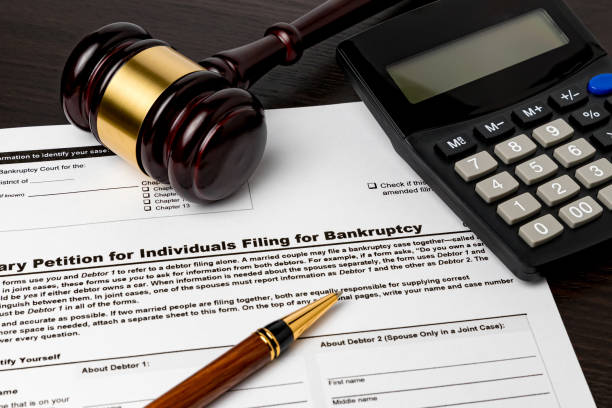When faced with overwhelming financial challenges, individuals and businesses often seek ways to regain control over their debts. Two of the most common options are filing for bankruptcy or negotiating a debt settlement agreement. While both approaches can provide relief, they have significant differences in terms of impact, process, and long-term consequences. Understanding these differences can help you determine the best course of action based on your unique financial circumstances.
Contents
Understanding Bankruptcy
Bankruptcy is a legal process that allows individuals or businesses to eliminate or restructure their debts under federal court supervision. There are two primary types of bankruptcy for individuals.
Chapter 7 Bankruptcy: Also known as liquidation bankruptcy, this process involves selling non-exempt assets to pay off creditors. Most unsecured debts, such as credit card balances and medical bills, can be discharged. However, not everyone qualifies, as income restrictions apply.
Chapter 13 Bankruptcy: This type allows individuals to restructure their debts and create a repayment plan lasting three to five years. Debtors can keep their assets while making regular payments to creditors based on their income and financial situation.
For businesses, Chapter 11 bankruptcy provides a way to reorganize debts while continuing operations.
What Is a Debt Settlement Agreement?
A debt settlement agreement is a negotiated arrangement between a debtor and their creditors, allowing the debtor to pay a reduced amount in exchange for satisfying the outstanding debt. A debt settlement lawyer can help facilitate these negotiations and advocate for the best possible terms.
Debt settlement typically works for unsecured debts, such as credit card balances, medical bills, and personal loans. Unlike bankruptcy, this option does not involve the court system, making it a more private resolution method.
Comparing Bankruptcy and Debt Settlement
A side-by-side comparison of bankruptcy vs. debt settlement can help you determine which solution fits your situation the best.
Impact on Credit Score
Both bankruptcy and debt settlement negatively affect credit scores. However, bankruptcy remains on a credit report for up to 10 years (Chapter 7) or 7 years (Chapter 13), while settled debts typically stay on the report for 7 years from the date of delinquency. Over time, individuals may recover from debt settlement more quickly than bankruptcy. Additionally, debt settlement attorneys may be able to negotiate with creditors to convince them to remove negative marks from the debtor’s credit report. This is not an option when a debtor files for bankruptcy.
Legal Protections
Bankruptcy provides an automatic stay, which immediately stops creditor collection efforts. This includes phone calls and texts, as well as wage garnishments, repossessions, and lawsuits. Debt settlement does not offer the same legal protections, meaning creditors can continue to take collection actions until an agreement is reached.
Time and Cost
- Bankruptcy: Chapter 7 bankruptcy can typically be completed within a few months, while Chapter 13 usually takes 3–5 years. Legal fees and court costs vary, but can sometimes be substantial.
- Debt Settlement: Negotiation time depends on the complexity of the debt and creditor cooperation. A debt settlement lawyer may charge a percentage of the amount saved or a flat fee for services.
Long-Term Financial Consequences
- Bankruptcy: Filing for bankruptcy can make it difficult to access to new credit, cause insurance premiums to go up, and limit housing options for years.
- Debt Settlement: Debt settlement can also impact future credit, but it may allow for quicker financial recovery if managed properly.
Choosing the Right Option for You
Determining whether to pursue bankruptcy or a debt settlement agreement depends on your financial situation, the type of debt you owe, and your long-term goals.
Consider bankruptcy if:
- You have overwhelming debt with no realistic way to repay it
- You need immediate legal protection from creditors
- You qualify for Chapter 7 and can eliminate most unsecured debts quickly
Consider debt settlement if:
- You want to avoid the long-term effects of bankruptcy
- You have a lump sum available to negotiate with creditors
- You prefer a negotiated agreement rather than a court-supervised process
How a Debt Settlement Lawyer Can Help
Navigating debt settlement negotiations can be complex and time-consuming. A debt settlement lawyer can:
- Assess your financial situation and advise on the best course of action
- Negotiate with creditors on your behalf to secure favorable terms
- Ensure settlements are legally binding and protect you from future claims
- Help you understand potential tax implications
Both bankruptcy and debt settlement agreements provide viable solutions for managing unmanageable debt, but they serve different purposes. Bankruptcy offers a legal way to discharge or restructure debt, while debt settlement allows individuals to negotiate lower payments. Consulting with a debt settlement lawyer can help you evaluate your options and make an informed decision that aligns with your financial goals.
If you’re struggling with debt and considering your options, seeking legal guidance can provide clarity and direction. Whether through bankruptcy or debt settlement, taking proactive steps can put you on the path toward financial stability.




